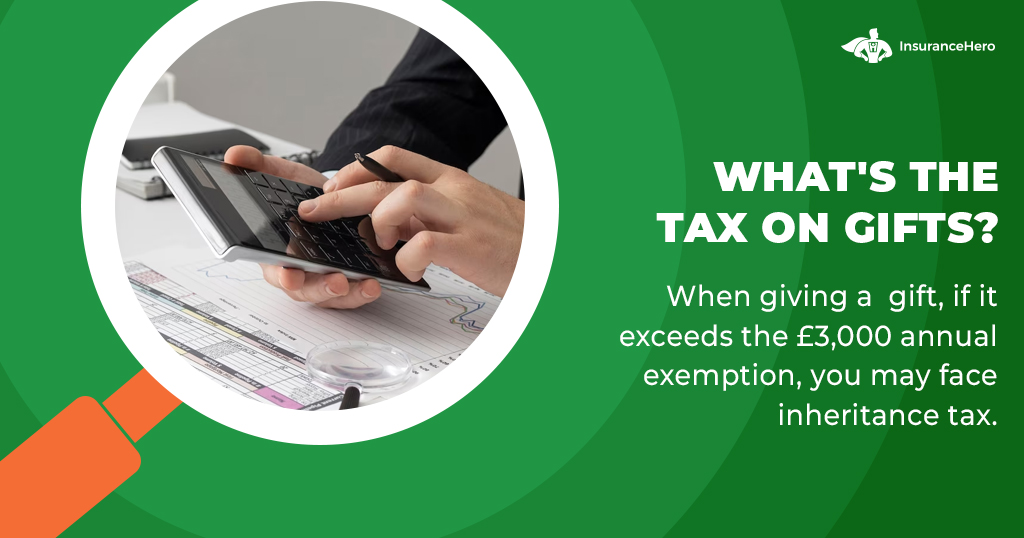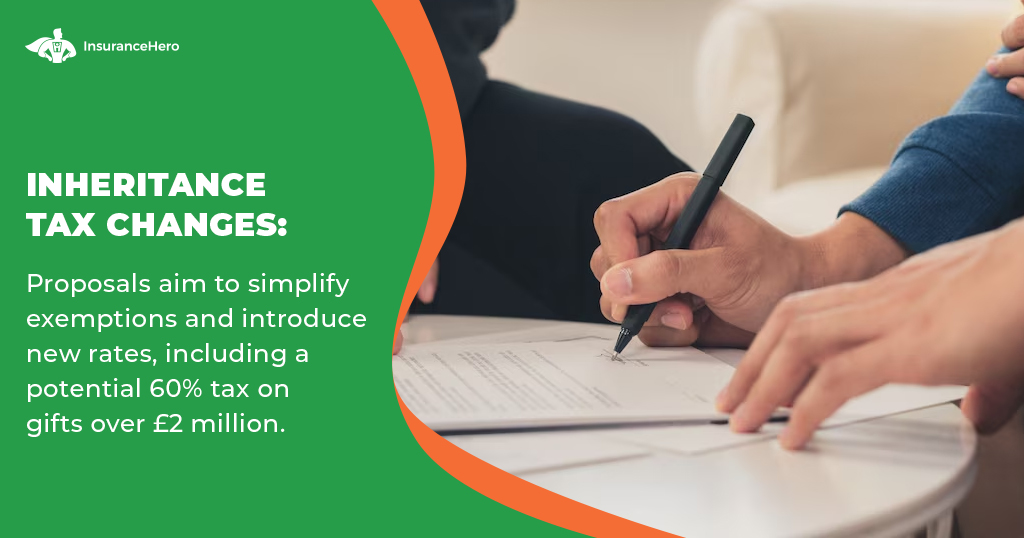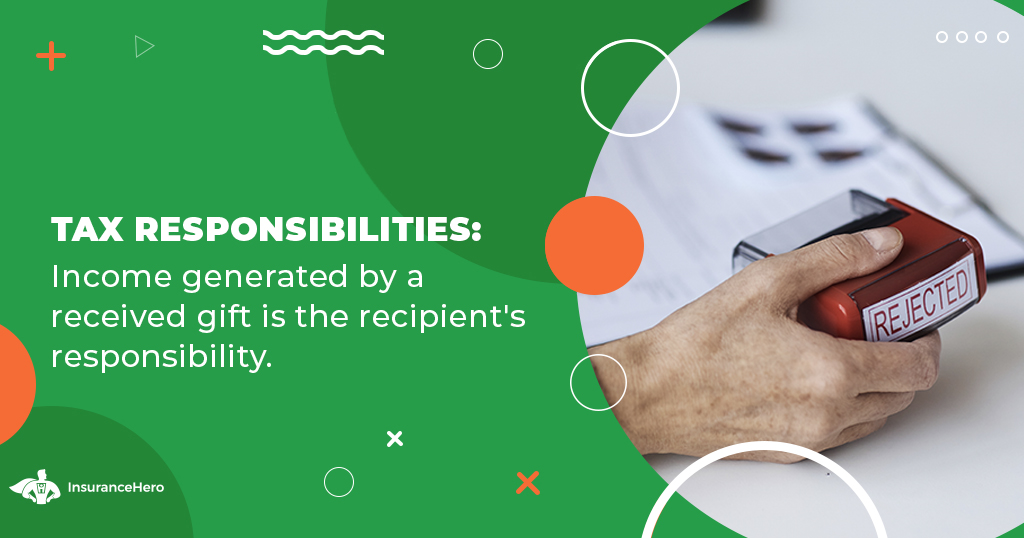UK Gift Limits: What’s The Maximum Amount You Can Receive?

Any time money changes hands between people, there are very likely laws and regulations that govern that money.
Is there a tax on it? Is there a limit that can be handed over before that tax applies? Are there exemptions?
Is there paperwork? Do certain kinds of gifts bypass the rules? Sometimes, it can take a lawyer to sort it all out. It varies from country to country and is even more complex if money changes hands across national borders.
In the UK, is there a limit to the numerical amount you can give or receive? Let’s find out.
Before we dig in too far, though, be aware that some of the numbers in this guide can change over time. While they’re currently accurate for 2025, the government can change things like tax rates and the annual exemption numbers anytime.
The annual exemption has been frozen since 1981, but the government has recently proposed and considered various changes to inheritance taxes. More on that later.
What Constitutes a Gift?
First, we need to define what a gift is in the eyes of the government. While a gift can be money, it can also be property or possessions. To add a bit more complexity, the nebulous concept of a “loss of value” is also a gift.
That one, at least, is easily explained by an example:
If you have a piece of property worth £100,000 and you sell it to a relative for £80,000 – taking a loss to do them a favour – that difference between the price paid and the market value (so £20,000 in this example) is considered a gift.
Essentially, you can think of it this way: money is a gift, and any time someone thinks of a clever way to transfer money without it counting as money, the HMRC will identify it and classify it as a gift anyway.

To answer one of the questions from the intro, yes, if you receive a gift, there is typically a tax associated with it. However, certain kinds of gifts are exempt from this tax. Additionally, everyone gets a “free” £3,000 to give away tax-free each year.
Exempted gifts include small gifts under £250 each, wedding gifts, gifts to a spouse, gifts to charity, gifts to political parties, and gifts that cover living costs.
Note: No, you can’t form a political party of one and receive infinite tax-free gifts; for a political party to qualify, they must have either two members minimum elected to the House of Commons or one elected member and at least 150,000 votes.
Gifting can be complicated, but when you look at it in the eyes of the HMRC and its tax avoidance specialists, you can get a pretty good idea of where the lines are generally drawn.
What is the Tax on Gifts?
When you give a gift, if that gift is not part of your annual exemption, you will often have to pay tax on the value given. Which tax, though, depends on the circumstances of the gift.
The most relevant tax is the inheritance tax. If you give a gift, and that gift is under £3,000, there are no tax implications at all. This £3,000 is cumulative for the year, though; if you give £1,000 to three different people, that’s it, it’s not £3,000 per person.

A common circumstance for larger gifts is an inheritance, such as a life insurance payout. If the gift you receive comes from someone who then passes away or is triggered by their passing, it is instead subject to inheritance tax.
Inheritance gifts have their own threshold before the tax kicks in. This threshold is £325,000. Any inheritance received worth less than that amount is exempt from the inheritance tax. Any amount over that is subject to a 40% tax rate.
This threshold, by the way, is known officially as the NRB, or Nil Rate Band.
Note: There are quirks and exemptions to this as well. For example, anything over £325,000 in value can also be exempt from tax if you’re leaving it to a spouse, charity, or amateur sports club. This, and other quirks, can be found on the government’s page about inheritance taxes.
As if this isn’t complex enough, here’s another issue: if you receive a gift and then, later, the giver passes away, that gift may then be subject to an inheritance tax, even if it wasn’t initially meant as an inheritance. This is called the 7-year rule.
The 7-year rule is a tapered scale for determining how much inheritance tax must be paid on a gift given when the recipient passes away within seven years of the gift.
The first three years after the gift are the full 40%. The fourth year brings it down to 32%, and the fifth year down to 24%. The sixth year is 16%, and the seventh year is only 8%; after the seventh year, enough time has passed that the gift can no longer be considered an inheritance.
Again, this is only on gifts exceeding the estate threshold of £325,000, so gifts smaller than that don’t need to worry about a retroactive inheritance tax.
So why is there a £3,000 limit on annual gifts if the actual relevant tax doesn’t kick in until the gift totals up to £325,000? It exists as a limiting factor in conjunction with the 7-year rule.
Mostly, it’s there to prevent older people in their estate planning from giving away significant chunks of their assets and estate over that seven years while keeping them under the amount that would trigger retroactive taxes when they pass.
What About Income Taxes?
Fortunately, gifts aren’t considered income, whether you get £3,000 or £300,000.

That said, if those gifts bring in income, that income will trigger income tax. It’s unlikely that that would be significant for a £3,000 gift. Still, for much larger gifts, any income they generate, including interest in a savings account, will constitute income and be taxed at your income rate.
A gift you receive will not trigger an inheritance and income tax; the gift itself triggers inheritance tax, while the income it generates triggers income tax.
Is Inheritance Tax Changing?
Many tax exemptions have been set in stone for quite some time. The £3,000 annual gift exemption has been set since 1981, the £250 small gifts exemption has been set since 1980, and the spouse gift exemption has been frozen since 1975.
That said, the government’s Office of Tax Simplification has recommended a reform that would combine all of these exemptions into one to simplify and reduce minute bookkeeping. This could potentially alter certain limits and circumstances.

Additionally, while the 40% inheritance tax rate was implemented in its current form in 1986, there have been additional proposals to add a 10% tax rate on lifetime gifts over £30,000 per year and additional taxes on gifts on death: 10% up to £2 million and 20% on anything in excess.
This would be in addition to, not instead of, the current inheritance tax, meaning a gift of over £2 million could accrue as much as 60% tax.
That said, none of these changes have been made real. They’re currently in the recommendations and proposals stage and must be taken up and passed by parliament before being implemented.
Who Pays the Taxes?
This is a simple question with a simple answer: Income generated by a gift you receive is your income and, thus, your tax to pay. However, inheritance taxes on the gift you receive are paid by the giver or the estate since those are essentially the same. They’re usually taken right out of the estate itself and aren’t the recipient’s responsibility to pay directly.

Again, there are exemptions to this. To use life insurance as the example again, if you pass away and your life insurance pays out, the tax it triggers depends on:
- The value of the payout. If the payout is under the £325,000 limit, no taxes are generated.
- The recipient’s relationship to you. A payout to a spouse is exempted, but a payout to children is not.
One thing to note is that the £325,000 limit is not per gift; it’s the sum total of your estate. If you have a life insurance policy worth £300,000, it alone won’t trigger the inheritance tax; however, if you also have a house worth £200,000 and a stock portfolio worth £200,000, the total of all of these assets is £700,000, which is £375,000 over the threshold.
This means your estate would be paying a 40% tax on that £375,000.
This is also a good place to mention that another tax can come into play: capital gains taxes. Your estate pays inheritance taxes on the total value of the estate. If you leave something like a house to your descendants, and they choose to sell the house, the value they receive from that sale is subject to capital gains taxes. Essentially, taxes are paid on the value twice.
How to Minimise Inheritance and Gift Taxes
When planning for your end of life or looking into estate management, a large part of your decision-making will be centred around making sure you leave the most support you can to your dependents and pay as little as you can get away with in taxes. So, what steps can you take to push for this goal?

Maximise your personal allowance each year. The £3,000 gift allowance, additional allowances for spousal gifts, gifts for the cost of living, and wedding gifts can all add up.
Since the amount you give each year is exempted from estate taxes in the eventuality of your passing, and since the retroactive look-back is seven years, by giving away the £3,000 each year, you can put an additional £21,000 on top of the usual nil rate band in place.
Consider a Trust. A trust is an entity managed by someone else that takes care of your assets according to your desires. Typically, they are used so that a trusted agent can handle your assets in the case of your mental infirmity or to avoid a lengthy and litigious probate period regarding your will. Critically, you avoid the inheritance tax since the trust distributes assets rather than gifting an estate.
That said, trusts are not for the faint of heart and aren’t entirely tax-free. While they don’t pay inheritance taxes on the estate you leave behind, they do have their own taxes. Three. There’s a tax when assets are put into a trust, a different tax when those assets are taken out of the trust, and a ten-year charge on the value of the trust over the nil rate band.
When managed properly and used in a relatively short term – under ten years – a trust can reduce but not eliminate the taxes paid on your assets. However, a trust can be detrimental to your inheritance if mismanaged or mishandled. It’s not a decision to be made lightly, in any case.
Get a life insurance policy. What’s a good way to ensure your dependents aren’t left scrambling when inheritance taxes scrape 40% of your estate over the nil rate band? Leave even more assets behind.
Life insurance coverage is an excellent way to prepare for the end of your life and the years beyond to secure a future for your beneficiaries. Whether they’re a spouse, a child, a close friend, or even a business, life insurance can pay a significant sum in the event of your passing.
While life insurance can seem confusing – and there are a few reasons why you might not want it – the truth is much easier to digest. Life insurance is an inexpensive way to secure the future for those you love.
It’s also more accessible than ever. At Insurance Hero, we’ve developed a quick and easy process for getting quotes from the nation’s top insurance companies. In a matter of minutes, you can get the best possible policy to meet your needs. Why not give it a try?
Steve Case is a seasoned professional in the UK financial services and insurance industry, with over twenty years of experience. At Insurance Hero, Steve is known for his ability to simplify complex insurance topics, making them accessible to a broad audience. His focus on clear, practical advice and customer service excellence has established him as a respected leader in the field.


